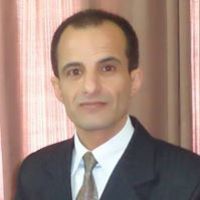
Dee Pratt
Hi - Please feel free to contact me if you have read any of my work and would like to discuss it and/or ask questions! I am a semi-retired academic working in Research and Postgraduate Support at the Durban University of Technology. I supervise PhD students, publish, run online research workshops and assist the Research Office with research guides, policies, forms and procedures. My PhD research was on systemic modelling of written communication.
Phone: 824229570
Address: 24 Anerley Rd
Morningside
Phone: 824229570
Address: 24 Anerley Rd
Morningside
less
Related Authors
Hadi Zare
University of Tehran
Mohamad Sayeh
An-Najah National University
أ.د/ سرحان سليمان Pro. Dr .Sarhan Soliman
معهد بحوث الاقتصاد الزراعى
Howard Edwards
Massey University
InterestsView All (12)




Uploads
Papers by Dee Pratt
analysis method developed in masters and doctoral research into
written composition over a period of 20 years. It also features a
series of composing profiles drawn up in the course of developing
the video protocol analysis method. These provide case studies of
student composing, which, it is hoped, might be of interest not only
to composition teachers and researchers, but also to academics in
general, as writing is the main form of assessment of progress in
universities. The video protocol method evolved together with a
developing theory of written communication which went some way
towards explaining the systemic nature of composing, as well as the
infinite variety evident in specific instances of composing. The
theoretical aspect is dealt with in some detail in Modelling written
communication: a new systems approach to modelling in the social
sciences, which is now in press. Protocols and processes
complements the development of the theory. It does so by showing
how video protocol analysis made the theoretical advances possible
and in providing a case book of the video protocol analyses which
not only contributed to the development of the theory but also
validated it.
The starting point in the modelling process was an empirical model, formulated in a previous study, and based on the close observations and generalisations of educationists and researchers who had studied composing. As the empirical model was already supported by extensive data of composing, a theoretical model was developed through a process of classical induction, with regular reference to data collected over a long-term period to support inferences arrived at inductively. The resulting theoretical model of written composition comprises an architecture of essential communicative functions, the property of which is communication in written mode. Written communication manifests as a complex process in stages, as observed by researchers and teachers, and as confirmed in a series of video protocol analyses. The system of functions without which effective written communication cannot take place revealed the empirical model to be in the nature of a stochastic algorithm which, while it could not guarantee effective written communication, would satisfy the preconditions for it to occur. The system of functions provided a perspective which made it possible to identify the complex mechanism whereby written communication is effected, as well as the causal factors which can be seen to give rise to the infinitely variable forms composing takes in specific instances (i.e. as input into the composing system). The system of functions is thought to be a generalisable principle applying not only to other communication modes, but with possible applicability in other fields, namely, educational design, art and music. It also facilitated the formulation of a second more analytical empirical model which was used to validate the theoretical model.
The study concludes with an account of the design and production of a working prototype of a writing tutor program, based on the first empirical model. This model was considered more suitable for pedagogical purposes as it offers learners a practical means of carrying out the essential communicative functions in real-life contexts: in effect, it is a type of social algorithm. The writing tutor program is easily customisable by the user, not only so as to reflect local academic requirements, but also to cater for individual learning needs.